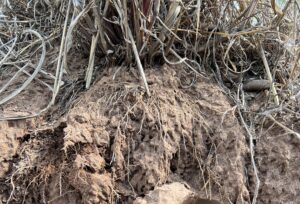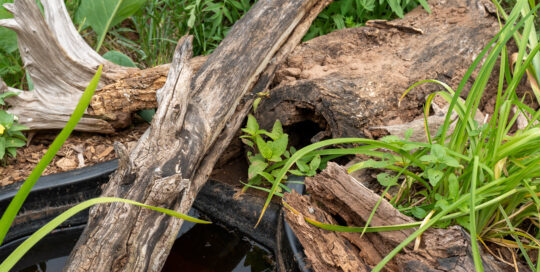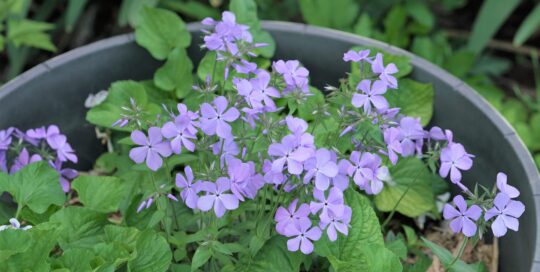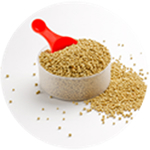Soil microbiomes: tilling may cause harm
Views: 396

Are you excited that spring is finally here? I know I am! So many plants are already coming up; my tulips are about to bloom, and every day I prowl my flowerbeds to see what survived last summer’s drought. I am pleasantly surprised, daily. I know many people are planning their vegetable gardens, and that often means tilling to prepare the plots. But more and more people are doing no-till gardening, and there are good reasons for that. You see, soil is a microbiome, and research shows that disturbing that microbiome may be extremely damaging and counterproductive to plant growth.
Soil as a microbiome
Soil is home to a diverse community of microorganisms, including bacteria, fungi, protozoa, and viruses. These microorganisms play crucial roles in maintaining the health and fertility of soil. They’re also important in nutrient cycling and plant growth.
Within soil, different microorganisms occupy different niches based on factors such as pH, moisture, and nutrient availability. For example, acid-loving bacteria may thrive in soils with a low pH, while nitrogen-fixing bacteria may be more abundant in soils with high levels of organic matter.
How does the soil microbiome help plant development?
A healthy soil microbiome is important to plants for many reasons, including:
- Nutrient cycling: Bacteria and fungi in the soil break down organic matter, such as dead plant material, and recycle those nutrients back into the soil. This ensures nutrients are available to plants and that the soil remains fertile.
- Nitrogen fixation: Certain types of bacteria, such as rhizobia and cyanobacteria, can fix atmospheric nitrogen for plants to use. Crops such as legumes have a symbiotic relationship with nitrogen-fixing bacteria.
- Disease suppression: Some bacteria and fungi in the soil can help to suppress plant diseases by producing natural antibiotics or competing with disease-causing organisms for resources.
- Plant growth promotion: Some bacteria and fungi can produce plant growth-promoting hormones, such as auxins. These hormones can stimulate root growth and enhance nutrient uptake.
- Symbiotic relationships: Some bacteria and fungi in the soil have symbiotic relationships with plants, such as mycorrhizal fungi, which form associations with plant roots and help to increase the surface area available for nutrient uptake.
How does tilling damage soil?
Tilling, or mechanically breaking up the soil, can be harmful to gardening for several reasons:
- Disturbance of soil microbiome: Tilling can disrupt the natural balance of microorganisms in the soil. This disruption can have negative effects on soil health and fertility. Tilling can destroy the intricate network of beneficial fungi and bacteria that live in the soil, interrupting important relationships.
- Soil erosion: Tilling can expose the soil to wind and water erosion, which can lead to loss of valuable topsoil and nutrients.
- Soil compaction: Tilling can also lead to soil compaction, especially when done repeatedly over time. This can make it harder for plant roots to penetrate the soil and access nutrients and water, leading to poor plant growth.
- Weed growth: Tilling can also stimulate weed growth by bringing weed seeds to the surface and exposing them to light and air, which can trigger their germination.
There are many resources available to help you get started with low- or no-till gardening. I think this fact sheet on low- to no-till gardening from the University of New Hampshire has a lot of good information.
Meet Leslie Miller
Leslie Ann Miller shares 3.5 acres in rural Oklahoma with birds, butterflies and wide variety of animals. She is currently transforming her yard with plantings…
Leslie's Recent Posts

Creating microclimates and microhabitats to benefit wildlife






